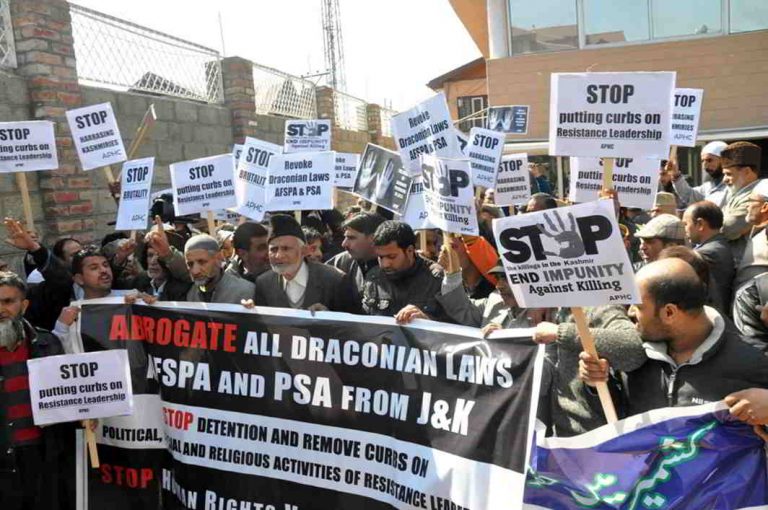
FIRs must for every killing in disturbed areas, says apex court
There has to be a mandatory FIR filed for every “encounter” death, even in designated “disturbed areas” which are under the Armed Forces Special Power Act (AFSPA), the Supreme Court has ruled.
According to a report published in The Times of India, the Supreme Court bench of Chief Justice J S Khehar and Justices Dipak Misra, J Chelameswar, Madan B Lokur and UU Lalit met Union government representatives (excluding their officers) in the CJI’s chamber, where the government’s appeal was rejected. The government had appealed that such a blanket order could hamper efforts at peace in the disturbed areas and would strike a blow to the morale of the security forces.
This means that last year’s Supreme Court order (July 8, 2016) in this regard, against which this curative petition was brought, has been upheld by the bench. The CJI has been quoted in the daily as saying: “We find no merit in the curative petition,” it said before rejecting the plea.
The government argument had said: “The Indian Army has to, in given circumstances, take quick decisions which cannot be dissected later on like an ordinary murder appeal. In other words, the scope of judicial review against active military operations cannot be on the same parameters as in other situations. Therefore, action taken by Army during operations cannot be put to judicial scrutiny.”
AFSPA has been enforced in certain areas in North-East India and in Jammu and Kashmir, where the government feels insurgency has to be treated with a strong hand. However, there have been several reports of excesses by the forces which, under the Act, are immune to prosecution.
A review petition by the center earlier had also been rejected by the apex court.
—By India Legal Bureau

